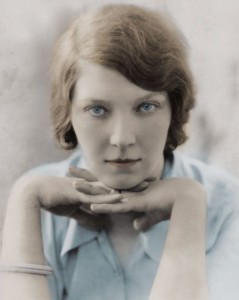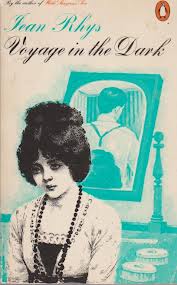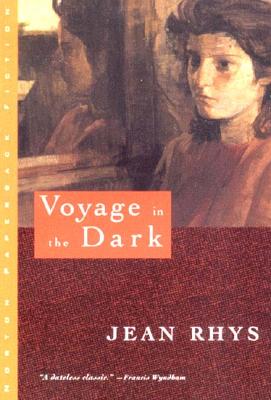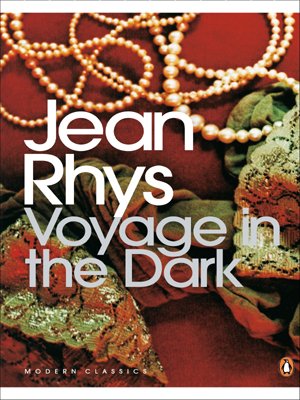 My violent objection to the notion of “unlikeable characters” began in fall 1996, in a UC Santa Barbara literature seminar. I was 20 years old and on the edge of a near-suicidal breakdown, having thrown myself for a full year at Eric, my elusive not-quite-boyfriend, while also fighting repressed childhood memories of my father’s sudden death. The professor for “Readings in the Novel” was an avuncular, brandy-voiced novelist from the Caribbean–what a lovely, safe escape from my obsessions this class would be. Then, on the second day of class, in walked Eric. Painful honesty compels me to report that I hoped this marked a fateful new chapter for us, and I adjusted the strap of my tank top to reveal more shoulder.
My violent objection to the notion of “unlikeable characters” began in fall 1996, in a UC Santa Barbara literature seminar. I was 20 years old and on the edge of a near-suicidal breakdown, having thrown myself for a full year at Eric, my elusive not-quite-boyfriend, while also fighting repressed childhood memories of my father’s sudden death. The professor for “Readings in the Novel” was an avuncular, brandy-voiced novelist from the Caribbean–what a lovely, safe escape from my obsessions this class would be. Then, on the second day of class, in walked Eric. Painful honesty compels me to report that I hoped this marked a fateful new chapter for us, and I adjusted the strap of my tank top to reveal more shoulder.
Fortunately, Eric was a lazy, mostly absent student. Did he show up the day we discussed Jean Rhys’s Voyage in the Dark? I feel like he did, but back in those days I lived with an illicitly thrilling and demented sensation that Eric was always with me, so it’s hard to remember.
What I remember best is the other students’ reaction to Voyage in the Dark’s narrator, Anna Morgan, a stand-in for Jean Rhys’s younger self, and a girl who, ahem, throws herself shamelessly at her lover and longs to die, while fighting repressed childhood memories of her father’s sudden death. “She’s pathetic,” the other students said. “She’s just a victim.” “There’s nothing you can like about her. She just seems like a waste of time.”
They weren’t just talking about Anna. They were talking about me.
I burned with shame but also with a vague sense of vindication, because I knew that Rhys’s third novel, published in 1934, was not just good. It was great. Most people know Rhys for Wide Sargasso Sea, her final novel, which resurrected her reputation in 1966 after she had disappeared from the literary world for more than two decades. Wide Sargasso Sea, a “prequel” to Jane Eyre set in Rhys’ childhood West Indies, is more academia-friendly, laced with “inter-textuality” and featuring a “colonialist setting.” But Voyage in the Dark is better. Consider its hypnotic opening:
It was if a curtain had fallen, hiding everything I had ever known…the smell of the streets and the smells of frangipani and lime juice and cinnamon and cloves, sweets made of ginger and syrup, and incense after funerals or Corpus Christi processions, and the patients standing outside the surgery next door, and the smell of the sea-breeze and the different smell of the land-breeze.
Sometimes it was as if I were back there and as if England were a dream. At other times England was the real thing and out there was the dream, but I could never fit them together.
From first page to last, it is a nearly perfect novel. But I didn’t make any such sweeping judgments as I read it again—and again, and again, and again—all through my twenties. I just loved it, with an unstudied passion that made me certain anyone who didn’t “like” difficult Anna was shallow and sheltered and had missed the point.
But had they?
In my mid-thirties, I began writing a novel with a nakedly autobiographical character drawn from my younger self—and people didn’t “like” her, which surprised me; whether she would be “liked” or “disliked” had never entered my mind. So, in recent years, I have revisited Voyage in the Dark, thinking Rhys might offer a helpful example. And I have discovered those hateful UCSB students were right.
Anna Morgan is the essence of “unlikeable” character, if by “unlikeable” we mean that she refuses to allow anyone to sympathize with her. One of Anna’s defining traits is that when she elicits pity, she trounces it. She is, as the other characters in the novel say of her, one of those people who refuses to “get on” in life. She needs others to feel badly for her, but when they do she resents them for it.
At 19, floating around England as a penniless chorus girl after the death of her father, soul-sick with longing for her native Caribbean island, Anna is presented with one chance after another to pull herself together, and she sabotages them all. Her older lover, Walter, provides vocal lessons, which she attends half-heartedly. He offers to arrange auditions that would help her build a real theater career, but Anna is indifferent to everything but his affection. When he breaks with her, he leaves her heartsick but not financially abandoned: He tries to pay her an allowance, but she rejects it. Soon enough, another second chance arrives in the form of an older woman who recruits Anna to perform manicures on men as part of a legitimate massage practice. All Anna must do is tolerate Ethel’s bouts of emotional neediness. But Anna cannot muster the will: she is so disillusioned by the world that she laughs with almost sociopathic coldness in her business partner’s face.
Surely, then, Rhys as author is obliged either to “redeem” Anna or give the reader some reason to care about her. But Rhys refuses. Instead, she doubles-down on Anna’s “unlikeability” and wins because of her brilliant handling of pity. Anna never asks the reader for it. This is a trickier storytelling feat than one might think, and Rhys accomplishes it with deft maneuvers of indirect revelation.
The most heartbreaking aspects of Anna’s backstory come to the reader through bold sideways flashes. For instance, rather than have Anna explain that her stepmother has cheated her of her inheritance, Rhys stages a scene in which Anna’s stepmother reacts to a letter from Anna’s uncle:
‘That’s an outrageous letter,’ Hester said.
She began to tap on the table.‘That letter,’ she said, ‘was written with one solitary aim and object—it was written to hurt and grieve me. It’s an outrageous thing to accuse me of cheating you out of your father’s money. I got five hundred pounds for Morgan’s Rest, that was all. Five hundred. And your father bamboozled into paying eight hundred and fifty.
Hester’s rant continues, but instead of appealing to the reader’s sympathy by describing or telegraphing her hurt, Anna tells us only, “I had been expecting something so different that what she was saying didn’t seem to make any sense. I was looking out the window. The leaves of the trees in the square were coming out, and there was a pigeon strutting in the street with its neck all green and gold.” Hester’s unwittingly self-incriminating lament continues:
‘I paid your passage to England I fitted you out to go to school you hadn’t a garment that was suitable for the winter a complete outfit—everything—had to be bought and I bore your expenses for a term. . . . And my income is under three hundred a year and that’s my income and out of that last year I sent you at one time and another thirty pounds and I paid your expenses and your doctor’s bill when you were ill in Newcastle and that time you had a tooth stopped I paid that too. I can’t afford to give you nearly fifty pounds a year. And all the thanks I get is this outrageous charge that I’ve cheated you and all the responsibility for the way you’re going on must be put on my shoulders. Because don’t imagine that I don’t guess how you’re going on . . .’
Narrating this, Anna tells us nothing of how she feels in reaction. Instead, Rhys plants a powerful detail that tells us much indirectly. Before Hester reads the letter, she tells Anna casually that the rector’s daughter is getting married and shows off the brooch she has bought for a present. Then, as Hester’s fit is simmering down:
‘I intend to write your uncle and tell him that I refuse to be made responsible for you. If he thinks that you’re not living in a fit and proper way he must do something to stop it himself; I can’t. I’ve always done my duty, and more than my duty, but there does come a time when—‘
‘The brooch has fallen down,’ I said. I picked it up and put it on the table.
‘Oh, thank you,’ she said.
And I saw her getting calm. I knew that she was saying to herself, ‘I’m never going to think of this again.’
You might expect Anna as first-person narrator to comment further upon the brooch, but she doesn’t. Rhys merely shows it to us and through it tells us all we need to know about Hester’s cruelty towards Anna. And thus: No plea for pity.
 We could attribute Anna’s silence to her emotional numbness. But Anna does at other times have strong emotional reactions—yet these too are related indirectly, for to have Anna relay them directly would implicitly solicit our pity. When Walter, Anna’s older lover, informs her—via a letter from his cousin—that he is through with her, Anna is crushed. Of course, she never says any such thing. Instead we flash to Anna’s childhood memory of her uncle’s false teeth, a symbol of death. Anna herself does not understand the connection: “I thought, ‘But what’s the matter with me? That was years and years ago, ages and ages ago. Twelve years ago or something like that.’” And in the next scene, when Anna meets with Walter hoping to change his mind, she flashes on memories of her father’s funeral:
We could attribute Anna’s silence to her emotional numbness. But Anna does at other times have strong emotional reactions—yet these too are related indirectly, for to have Anna relay them directly would implicitly solicit our pity. When Walter, Anna’s older lover, informs her—via a letter from his cousin—that he is through with her, Anna is crushed. Of course, she never says any such thing. Instead we flash to Anna’s childhood memory of her uncle’s false teeth, a symbol of death. Anna herself does not understand the connection: “I thought, ‘But what’s the matter with me? That was years and years ago, ages and ages ago. Twelve years ago or something like that.’” And in the next scene, when Anna meets with Walter hoping to change his mind, she flashes on memories of her father’s funeral:
We went and sat in a corner.
I said, ‘I’ll have coffee.’
I imagined myself saying, very calmly, ‘The thing is you don’t understand. You think I want more than I do. I only want to see you sometimes, but if I never see you again I’ll die. I’m dying now really, and I’m too young to die.’
. . . The candles crying wax tears and the smell of stephanotis and I had to go to the funeral in a white dress and white gloves and a wreath round my head and the wreath in my hands made my gloves wet—they said so young to die . . .
What little non-dialogue narration of the present scene Anna gives us is remarkably cool, though presented in run-on syntax that indirectly conveys her desperation: “When he talked his eyes went away from mine and then he forced himself to look straight at me and he began to explain and I knew that he felt very strange with me and that he hated me, and it was funny sitting there and talking like that, knowing he hated me.” Anna never tells us she has been devastated or destroyed or anything that might earnestly ask for our caring. Rhys leaves such pronouncements for Walter—and Anna refuses his pity even in her moment of deepest panic and pain, which she is too numb to register:
I got a taxi outside the hotel. I felt all right except that I was tired and I couldn’t sit up straight. When he said, ‘O God, look what I’ve done,’ I wanted to laugh.
‘I don’t know what you mean,” I said. ‘You haven’t done anything.’
Anna’s self-destruction continues. After falling in with a slightly more sinister version of Walter through a friend, she begins to pick up random men. In her room with one of these informal clients one night, she becomes violently sick and realizes she is pregnant. But again, Rhys has Anna, as a retrospective first-person narrator, refuse any pity. Instead of asking for concern or sympathy, Anna thinks of others’ judgment:
The bed was heaving up and down and I lay there thinking, ‘It can’t be that. Pull yourself together. It can’t be that. Didn’t I always’ . . .
Of course, as soon as a thing has happened it isn’t fantastic any longer, it’s inevitable. The inevitable is what you’re doing or have done. The fantastic is simply what you didn’t do. That goes for everybody.
The inevitable, the obvious, the expected . . . They watch you, their faces like masks, set in the eternal grimace of disapproval. I always knew that girl was no good. I always knew that girl was . . . Why didn’t you do this? Why didn’t you do that? Why didn’t you bloody well make a hole in the water?
 In her anger over other people’s judgment of her—and she is correct in how they judge her—Anna is like a dog that has been struck too many times, snarling at anyone, even at the reader, who might reach out a hand. But the moment that really kills me, the scene that is the piercing climax of unwanted pity in the novel, arrives when Anna must meet with her former lover Walter’s cousin, Vincent, to ask for money for an abortion. This moment, the novel’s final “turn,” is a masterful maneuver of indirect revelation. After assuring her of Walter’s financial assistance, Vincent says he must ask Anna to return any letters Walter wrote her.
In her anger over other people’s judgment of her—and she is correct in how they judge her—Anna is like a dog that has been struck too many times, snarling at anyone, even at the reader, who might reach out a hand. But the moment that really kills me, the scene that is the piercing climax of unwanted pity in the novel, arrives when Anna must meet with her former lover Walter’s cousin, Vincent, to ask for money for an abortion. This moment, the novel’s final “turn,” is a masterful maneuver of indirect revelation. After assuring her of Walter’s financial assistance, Vincent says he must ask Anna to return any letters Walter wrote her.
I went and got the letters. I didn’t look at them, except the one on top, which was, ‘Will you be in a taxi at the corner of Hay Hill and Dover Street at eleven tonight? Just wait there and I’ll pick you up. Shy Anna, I love you so much. Always, Walter.’
Never in the novel has Anna told the reader that Walter said he loved her. Now, through Rhys showing us this single sentence in the letter, we understand the depth of Anna’s real vulnerability. But Anna as narrator doesn’t pause to comment. Of course she wouldn’t. To comment would be to admit that the reader ought to feel sorry for her, and Anna would sooner die.
Or is that quite right? That analysis is too simple, I think; it grants both Anna and Rhys far more innocence and naivete than is warranted. Because both Anna and Rhys are shrewdly calculating. Every successful storyteller must be. And every first-person narrator has a motive, baldly stated or covert. Most first-person narrators, however subtly or subconsciously, want their readers’ understanding—why else would they tell their stories? But Anna—and behind her, Rhys—are an exceedingly rare case of the opposite. I know you hate me, their storytelling implies. Go on, then, they taunt. Go on and hate me. Those students back at UCSB were reacting exactly as both Rhys and Anna would have expected.
I am no longer Anna. But even though I now understand that those students were “right” in their disdain, I think Rhys’ stubborn achievement is more important than ever. Because if you consider the “accident” of the body you inhabit, the circumstances you inherited, the temperament your genes granted you, the truth is that anybody could be Anna. And herein fiction is poised to offer the ultimate spiritual challenge, rarely issued these days. There is no reason you should like Anna. But should you love her? That depends on your ethic, your practice, your choice between telling yourself “I could never be Anna” versus “It is only an accident of circumstance that I am not Anna.” Fiction creates, through story architecture and artful form, an open space to consider the “thing itself” of experience. Rhys, I think, expects us to hate Anna; at the very least, the question of whether we “like” her isn’t one she’s asking. Nonetheless, we ask it of ourselves: should we as readers confirm Rhys’ bitter assumptions about the limits of our empathy? Maybe. Or, if you’re willing to love Anna—maybe not.





